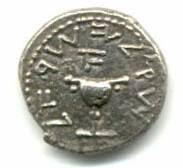As part of my continuing series (read the first part here), on Public museums' loss and mismanagement of our history, we have another example of why the past is too important to be left in the hands of museum curators alone -- namely because it tends to either slip through - or stick to - their fingers.
The Dayton Daily News reported on November 16, 2003 that more than 3,500 items are missing/lost/stolen from the US Air Force Museum at Wright-Patterson Air Force Base.
Among the missing items are a 37mm antiaircraft gun; machineguns; bayonets; missiles; patches; astronaut memorobillia; medals and in particular medals belonging to the first Black American combat aviator which were stolen in 1990.
Impressively an entire working Peacekeep Armored Vehicle was stolen by a former museum Chief of Collections. The Chief was under suspicion for some time and had been ordered to return items in the past. But he wasn't fired or removed from the musuem because, as the Major General who was the Director of the Museum stated, "You can't just summarily fire people" due to, as the article reports 'strong civil service protections'. It apparently took so long to finally catch him because "The bottom line is nobody looked at the documentation," The General said. "The auditors didn't. The OSI didn't."
So the next time someone argues that all artifacts should be under the care of professionals, and the next time someone parrots Indiana Jones's statement from Indiana Jones and The Last Crusade that an artifact "belongs in a museum", you may want to point out that collections, even at a secure facility such as an Air Force base, guarded by career Civil Servants, still are highly vulnerable to losses, mismanagement and outright theft.
Indeed, the reason such thefts and inventory losses are so easy is that the public employess at museums tend not to have a personal stake in the collections, if they did, then perhaps they would be less tolerant of a loss of irreplacable atifacts of our history.
Tuesday, December 16, 2003
Subscribe to:
Post Comments (Atom)

No comments:
Post a Comment